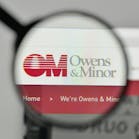Mention the acronyms DEI and ESG or the term “sustainability” to many within certain generational groups and you might notice some kind of obscure facial tic in the response – be it a quick ear wiggle from a clenched jaw, an eyeroll, a lip purse or some such to indicate masked mild annoyance and irritation.
Some equate these terms to political and popular fads, spread exponentially faster through social media by hyperactive demagogues with extremely low attention spans and self-absorbed advocates embracing virtue signaling with vocal fry as persuasive techniques.
In short, these legitimate and salient issues unfortunately have been hijacked by the wrong human megaphones who have usurped a bully pulpit that besmirches the healthy strides and successful work of those truly making a difference without nearly as much publicity.
Rather than dismiss these issues as just another passing fancy (although you’d hardly be able to classify environmental responsibility and sustainability as a flash in the pan when it’s been around for more than 50 years), perhaps the most useful strategy and tactic is to introduce them to the “what triplets” – led by the oldest “What,” the “middlest” “So What” and the youngest “Now What.”
What: Stripping away the emotional excess, hyperbole and red tape should expose DEI and ESG as relevant efforts and intentions to enable anyone – everyone – with an equal or equivalent opportunity to participate and succeed at something, at anything, that can contribute to the greater good. Great ideas aren’t confined to a single economic or ethnic group, gender or religious category. You can trace this back through to the dawn of recorded time. Further, environmental responsibility and sustainability merely demonstrates our healthy stewardship of the resources we have for our use – attitudes and behaviors that are for our own good. Think of it as effective parenting of organic and inorganic objects.
So What: During an educational session at the GHX Summit six months ago, a passionate panelist uttered something profound that punctuated the need to support these issues in a world that juggles simmering labor challenges that have reached a boiling point with shortages and strikes. What did she say? Paraphrasing, “The new generation of talent expects this kind of thinking to be ingrained within the infrastructure of the organizations in which they pursue and seek employment. If they don’t see that you’re serious about this they’ll go somewhere else, so you need to start doing something about this to attract talent or the economic consequences will be striking.” The last word was added for subtle emphasis. Looking ahead, imagine a collective mindset moving markets.
Now What: From several related thematic sessions at the GHX Summit you could glean a common thread. Healthcare organizations – make that all organizations – must insert these issues into strategic and tactical goals and plans so that everyone is accountable and responsible for the desired outcomes. Notice the active and personal intent of “is accountable” versus the passive and collective “held accountable.” One panelist expressed that short of such requirements emanating from the C-suite throughout an organization all the way to the trenches, this becomes a “nice-to-have” mantra instead of a “need-to-have” business and cultural plan.
Here's the rub: While true momentum with these issues must start from a single demarcation or multiple launching points, they ultimately require most everyone’s participation to be meaningful. Think of it like a band or orchestra where multiple musicians play trombone and cover for one another so that when one or two must rest their embouchure, the sound continues to keep the symphony progressing.
You don’t have to be a rocket scientist to get this. You just have to be a selfless and servant-minded leader, regardless of your title.

Rick Dana Barlow | Senior Editor
Rick Dana Barlow is Senior Editor for Healthcare Purchasing News, an Endeavor Business Media publication. He can be reached at [email protected].





